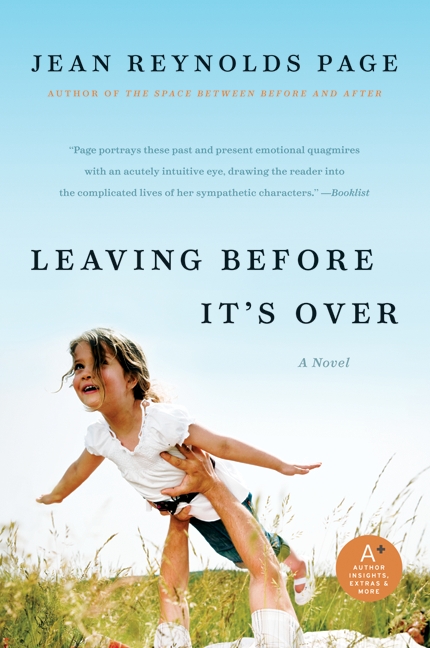 Synopsis:
Synopsis:
The Vines family is struggling. Rosalind is ill and, because business has been slow at her husband, Roy’s, auto repair shop, he let their health insurance coverage lapse. Now Rosaline needs to see specialists who will determine a treatment regimen, all of which, even in 1976, will cost far more money than Roy can possibly scrape together.
Roy has no choice but to return to his home and the family of origin he hasn’t even spoken to in eleven years, including his identical twin brother, Mont, in the hope that they will help pay for Rosalind’s care. Roy chose Rosalind over his family and inheritance, and told his two daughters, Lola, 16, and little Janie Ray, 4, that his parents were dead, because he figured that would be less painful for them than the truth. He and Rosalind moved to Linton Springs, North Carolina where they have happily raised their girls, even though their small home is “half of a half-empty duplex” and they have never been financially well-off.
Roy is reunited with his father, Taylor, and mother, Lydia, for the first time in well over a decade. He also meets Luke, the seventeen-year-old who looks just like him. He learns that Luke has been living with his parents since Luke’s mother, Sherry — who was also Roy’s ex-wife — died unexpectedly eight years ago.
When Luke gets into trouble, Mont and his father devise a plan. Mont will give Roy the money he needs, if he takes Luke home to live with Roy and his family for the summer. Luke is scheduled to graduate from high school in two weeks, but Mont has even bigger plans. He is running for office and can’t afford a scandal. Roy reluctantly agrees because Luke believes Roy is his biological father — and that he abandoned him years ago. Now Roy has to convince Rosalind to let Luke stay with them and their girls in a house that is so small Roy has to convert the porch into a sleeping room for Luke. And Luke has to adjust to living with a family he never knew he had — and isn’t sure he wants to get to know.
Review:

Page’s brilliant exploration of identical twins grew out of her childhood fascination of the “evil twin” plot device that was frequently employed on the popular television programs we watched as we were growing up. Her favorite was I Dream of Jeannie. Jeannie, portrayed by Barbara Eden, “changed her hair color and you suddenly had yourself a villain.”
In the case of Roy Vines and his identical twin brother, Mont, they look more alike than any other twins that folks around Gray’s Hollow have ever seen. Even as grown men, they can still fool their parents into believing that they are having a conversation with the other brother. As a boy, Roy wanted to feel close to and a connection with Mont, but before the two boys reached puberty, Roy knew that, despite their physical similarities, they were very different. He was saddened even then by the fact that they lived completely separate, detached lives. Matters did not improve when Roy married his first wife, Sherry, and Mont married Della.
Roy knows just how lucky he was to subsequently meet and marry Rosalind, even though their relationship cost him not just his family members, but his inheritance, family legacy, and home. Still, he has never regretted leaving Gray’s Hollow and establishing a simple, but happy home with Rosalind and their two daughters. And Roy cannot bear the thought of not being able to properly care for her now that she has been diagnosed with a serious blood disorder. As the story opens, Roy has swallowed his pride and done the one thing that Rosalind knows he would only do in the case of absolute desperation. He has returned to Gray’s Hollow to ask his family for money to pay for the medical care she needs to survive. Roy is a principled, ethical, hard-working man for whom nothing is more important than his wife and children, including his dignity. A man of few words who generally thinks before he speaks, Page’s descriptions of Roy conjure up images of Gary Cooper or Gregory Peck.
“I’ve often experienced the feeling of escape when reading a novel, but fiction can also serve as a way to engage, as well – to connect the dots from past realities to present ones.”
~~ Jean Reynolds Page
Page deftly showcases the distinctions between the family from which Roy came with the family he and Rosalind have created. And indeed there are a few villains in this story. Mont’s character flaws are gradually revealed as the story progresses and more details about his history are revealed. Page does an excellent job of keeping her readers guessing about Mont’s motivations until the very last few pages of the book. Things are not always as they seem, and Roy is forced to come to terms with the fact that Mont has kept many secrets over the years, some of which were always known to folks Roy thought had no idea about the truth. In fact, Roy eventually learns that the fundamental assumptions upon which he has shaped his life were erroneous as Mont’s true nature simultaneously becomes apparent to Roy and the reader.
But it is Lola who is the heart, soul, and spirit of this story. At 16, Lola is wise beyond her years — an elderly neighbor woman calls her an “old soul.” She is opinionated, as well, and wants answers from her parents about what is happening to her family. She frequently speaks up, to the delight of her mother, Rosalind, who loves her husband deeply, but also has her own voice — something not all married American women, particularly in the South, had yet developed in 1976. After all, the Women’s Movement was ongoing, and Betty Ford had recently shocked Americans by declaring that she slept in the same bed as her husband in the White House. At first leery of her new-found older brother, Lola cannot deny the kinship that she feels with Luke and finds herself wondering if their deep connection has always existed, even though they have only just met and are in the process of getting to know each other.
And what if they aren’t really brother and sister, after all? Lola has to determine whether a genetic connection is what binds her to Luke or if it is actually something deeper. Does it matter, anyway? Either way, in her eyes, he is still family.
Luke is nearly a man, but, as Rosalind discovers, still very much a little boy, too. One who has never felt unconditional love and acceptance from his father’s family, and is trying to hold onto and honor his memories of his mother, even though they are slipping further away with time. He finds himself drawn to his new family, especially when his father treats him as an individual worthy of respect and acknowledges Luke’s kind and helpful spirit. Luke begins to see Roy as the father he always wished he had, even though he feels loyalty to his grandfather and grandmother who provided him with a home after his mother’s death. In their home, though, he perceived himself to be a burden or obligation. With Roy and his new-found family, he senses that he is valued and loved, but Mont threatens to destroy Luke’s new-found security and his chance to be happy. When Roy insists that Luke must make his own decisions, he, like Lola, must decide what matters most to him: Familiarity and his life-long connection to his paternal grandparents and Uncle Mont or the relationships he is forging with the father and siblings he thought he would never get to know?
Mysteries abound and as the end of the book is near, the action picks up speed and clues begin to take on meaning. Shocking revelations place the various characters at crossroads, making decisions about their futures and, in some instances, devising mechanisms to protect other characters’ futures.
Page expertly sets the scene with salient references to life in 1976 that will make readers old enough to remember oil embargoes, bell bottom pants, and Chevy Novas wax nostalgic. Duncan, the somewhat troubled young man to whom Lola is drawn, describes how he spent two years restoring a classic Ford Mustang. In many ways, life was much simpler back in 1976, before the internet, iPads, iPods, iPhones, and Wii’s. But family dynamics and relationships have always been complicated — and always will be — which is what makes reading about them so thought-provoking and enjoyable, especially when an author as skilled as Jean Reynolds Page crafts an absorbing tale like Leaving Before It’s Over.



10 Comments
[New Post] Book Review: Leaving Before It’s Over https://www.jhsiess.com/2010/09/02/book-r…
[New Post] Book Review: Leaving Before It’s Over https://www.jhsiess.com/2010/09/02/book-r…
What a thorough review! I read and reviewed this book too and I agree with your assessment that Lola is the heart and soul of this book. I enjoyed the book and it did seem like life was simpler but you make a good point in that family conflict has always existed and served to complicate things!
Thank you so much for the lovely review. Family members or relationships are an important part of one’s life and one can certainly not learn to live without them under any circumstances. I am looking forward to giving this novel a read.
Thanks for sharing your insights about the book. A must buy for me.
Pingback: Jean Reynolds Page, author of Leaving Before It’s Over, on tour August/September 2010 | TLC Book Tours
You are so right – the time period doesn’t matter, families have been and always will be the same, full of complex relationships and mixed expectations. I’m so glad that you enjoyed this book. Thanks for being a part of the tour!
Family has always been a topic close to my heart, although I want to strangle my little darlings at times (come on, we have all been there). I think that the importance of family is paramount. Unfortunately, we do not really see this alot in the society we live in today, with increased crime and divorce rates all stemming from a breakdown at the most fundamental level- the family.
I’d love to enter!
Pingback: Review: Leaving Before It’s Over by Jean Reynolds Page | Jenn's Bookshelves